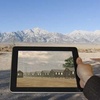
Read Chapter 5 (5) >> 4. Pain for Children The impact of the internment experience on each child is different, but it seems to vary greatly depending on age, living environment up until that point, whether or not they had a support group, the mental stability of their parents, etc. …
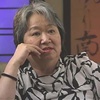
Read Chapter 5 (4) >> Public hearings - 1981 The hearings, held across the US from July to December, came to Seattle when Mako Nakagawa's father, who was busy thinking about who to invite to his 88th birthday celebration, decided that it was important to testify at the hearings and …
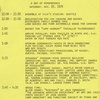
Read Chapter 5 (3) >> 3. Breaking the Silence : The Reparations Movement from the 1970s to the 1980s Young second and third generation Japanese Americans, inspired by the African-American civil rights movement and minority movements of the 1960s, also began to voice their support for the creation of Asian …
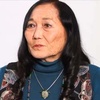
Read Chapter 5 (2) >> 2. Unravelling hidden memories < From the late 1960s > "Farewell to Manzanar" - Jeanne Wakatsuki "Hey, Auntie, I was born in a place called Manzanar. What was it like there?" my nephew asked me out of nowhere. It was the first time I'd heard …
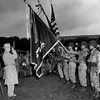
Read Chapter 5 (1) >> Another Battle On July 15, 1946, in front of the 442nd Regimental Combat Unit, including the 100th Infantry Battalion, 1 , which had achieved many great feats, President Truman said on the White House lawn, "You not only fought the enemy, you fought racism. And …
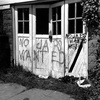
Read Chapter 4 (6) >> That's right. As Aoki Sachiko wrote on the cover of the previous issue (Children and Books No. 136), the Japanese Americans who left the internment camps kept their wounds from anyone for a long time. The Japanese Americans had done nothing wrong, but the fact …
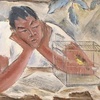
Read Chapter 4 (5) >> 3. 1945 Cancelled Inter-Staff Matches — Early Spring In early spring, Manzanar experiences constant dust storms and light snow, but the boys' basketball team was full of excitement as they prepared for a friendly match against Bishop High School in a nearby town. It was …
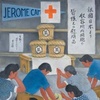
Read Chapter 4 (4) >> 2. 1944 Comfort goods arrive from Japan on an exchange ship — Early spring The scent of home arrived on a ship that exchanged prisoners between Japan and the United States. Supplies procured with funds raised in Japan to help Japanese nationals residing in enemy …
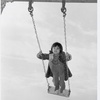
Read Chapter 4 (3) >> Children's daily life—Summer By the time they reached high school age, there were many organized pastimes, such as baseball, basketball, and dance parties, but organized activities for preteens were limited, and they often hung around the camp in groups and caused trouble. So the administration …
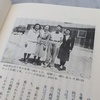
Read Chapter 4 (2) >> Time to leave Those who answered "yes, yes" to the 27th and 28th questions and were recognized as loyal were encouraged to leave the camps early to join the military or to work or study in Midwestern or Eastern towns. To help Nisei students who …